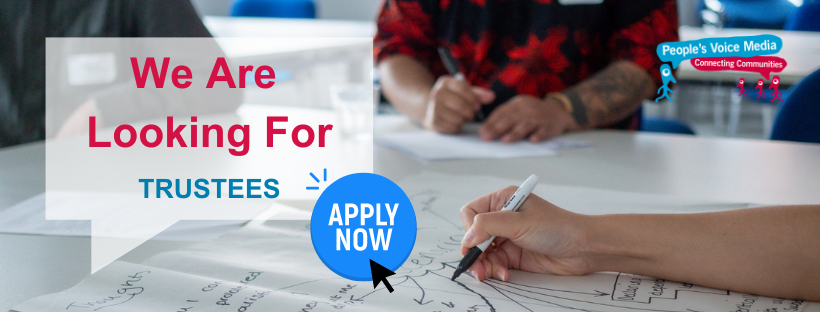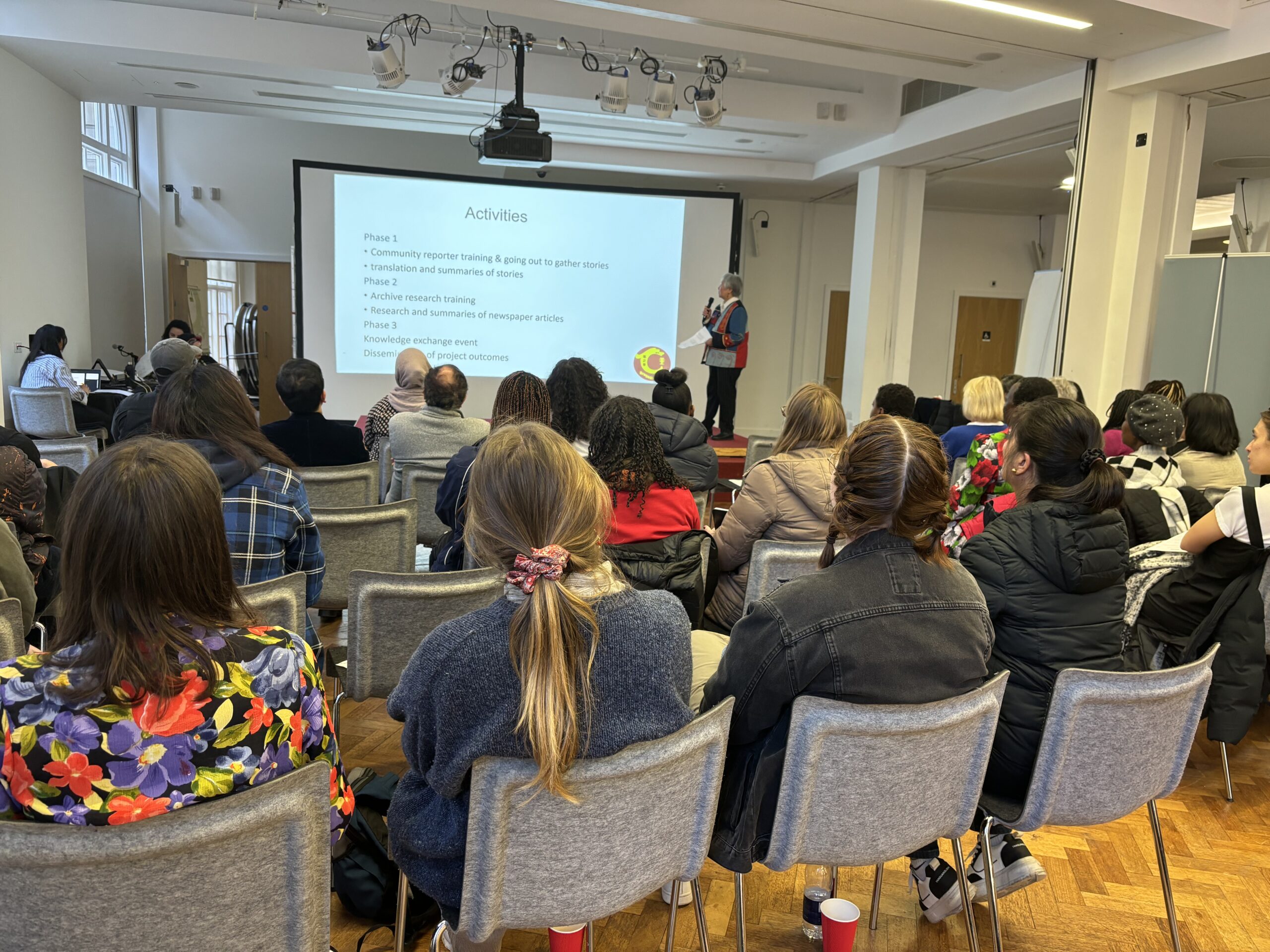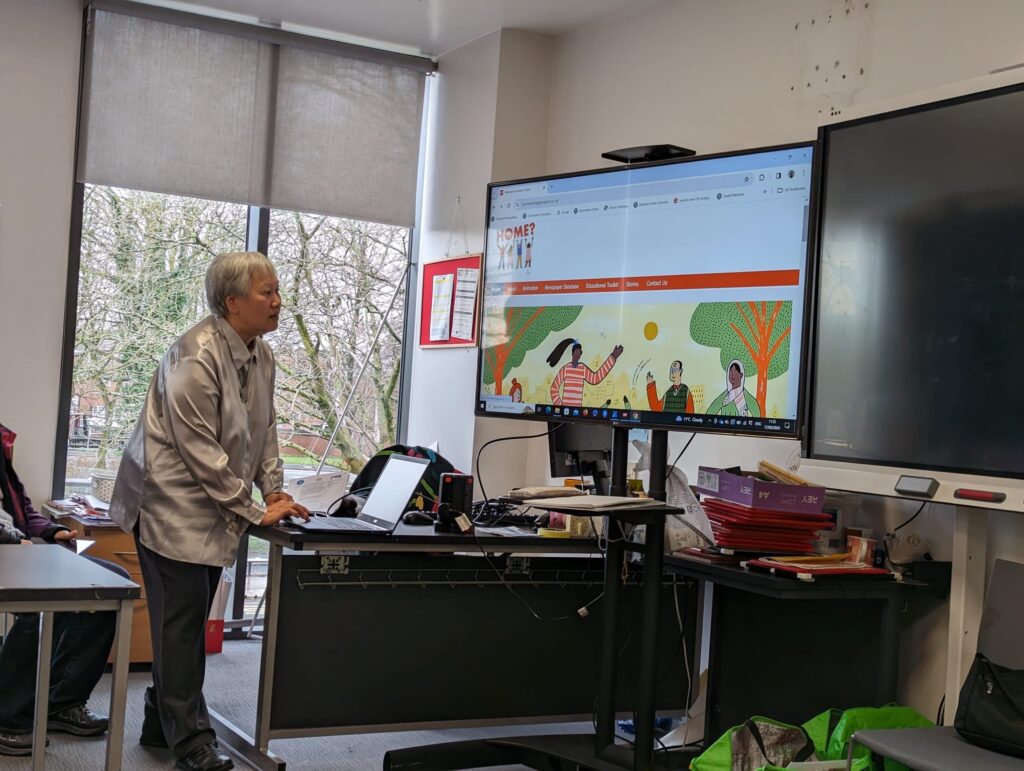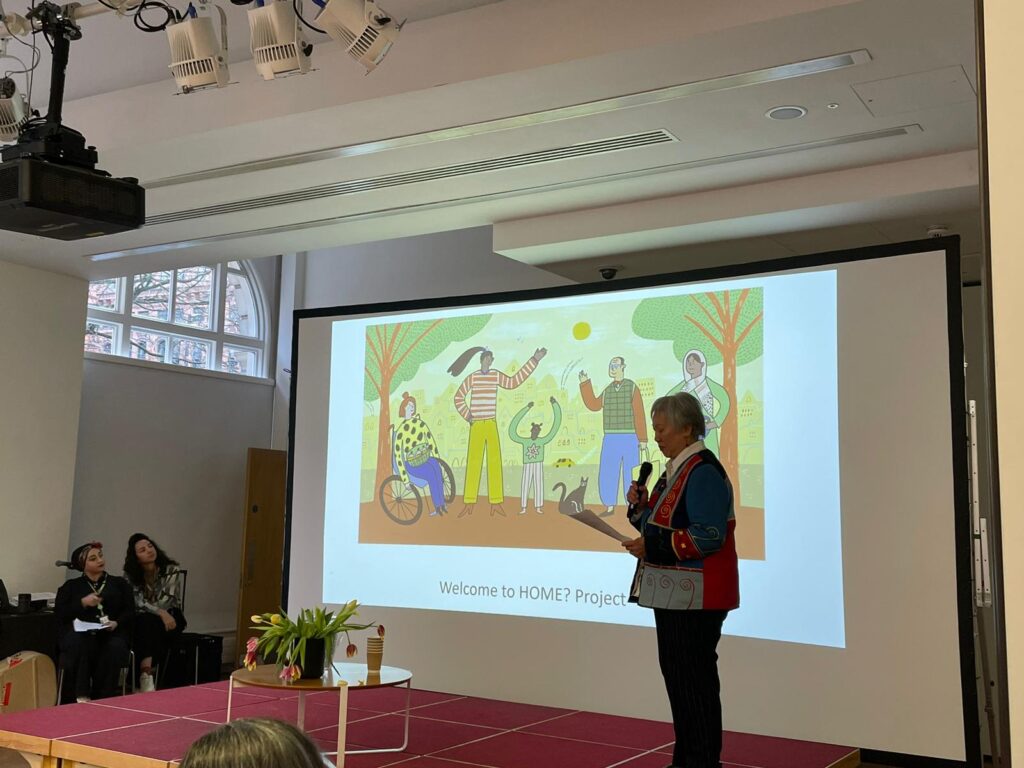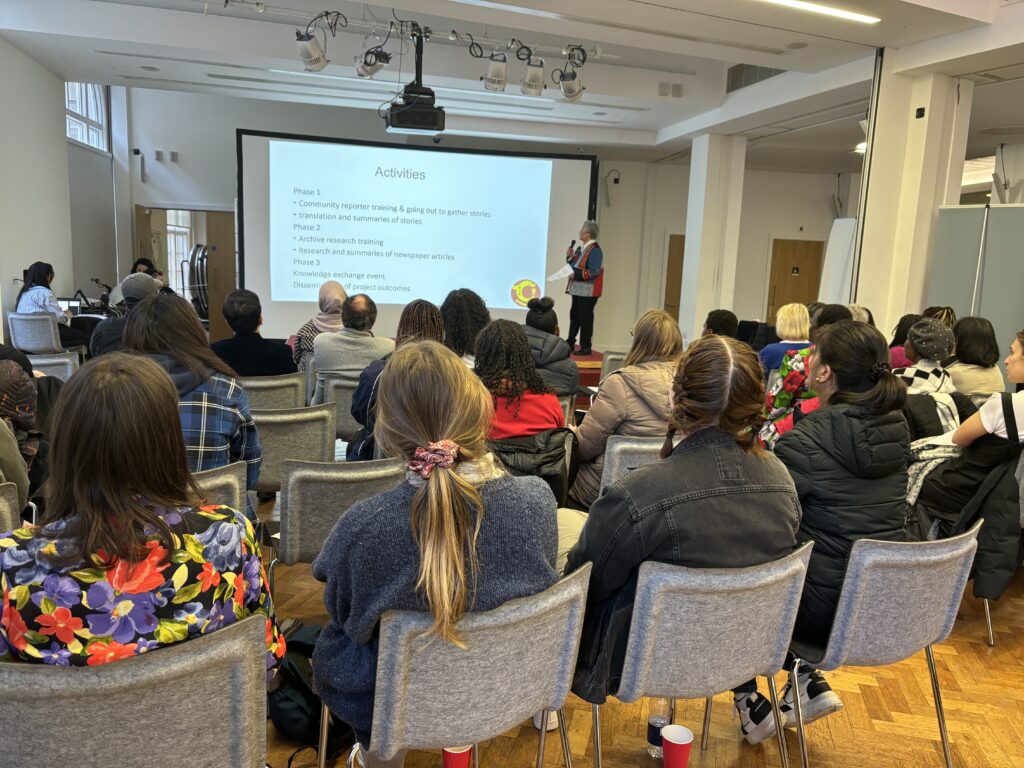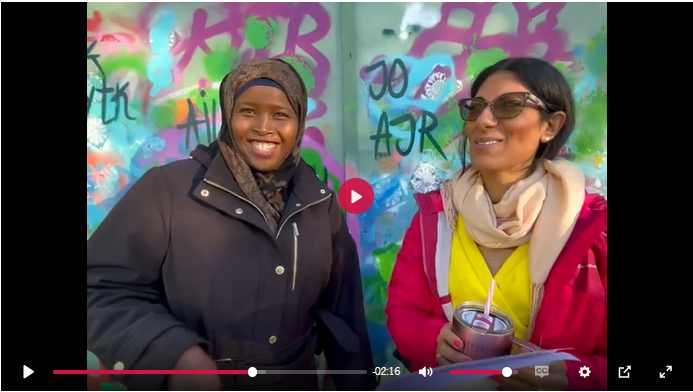RIPPLE EFFECT MAPPING & CAMERADOS PUBLIC LIVING ROOMS
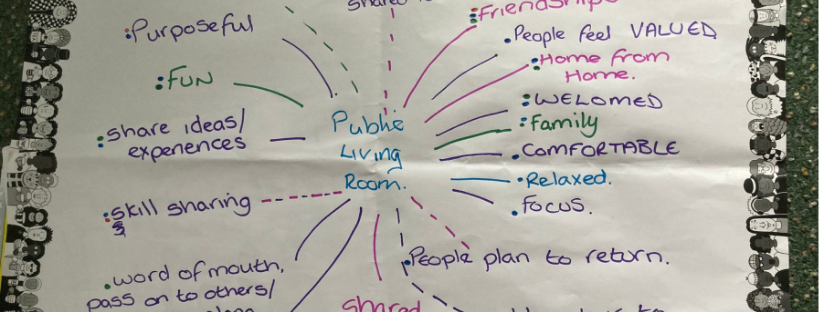
Members of the Camerados movement have been busy mapping out the ripples of impact their public living rooms have had on local communities.
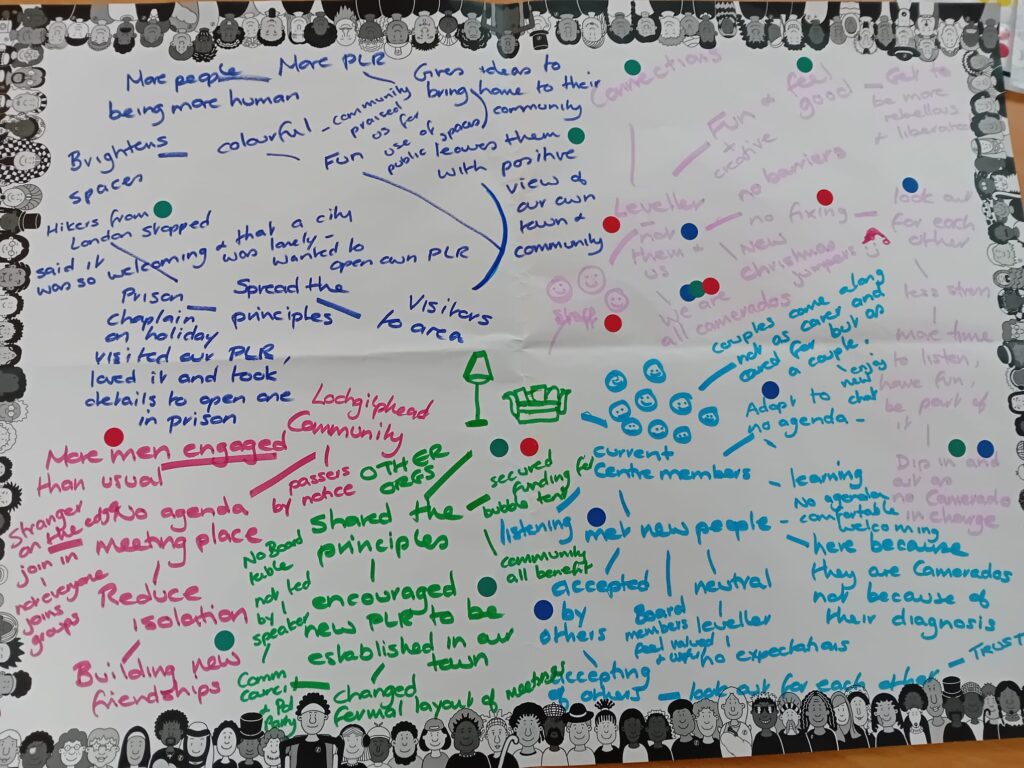
Over the past 2 years, people have come together online to learn about Ripple Effect Mapping and share the waves of impact that have been brought about by public living rooms from Boston USA to Lochgilphead Scotland.
Public living rooms are a concept created by the Camerados movement to encourage the creation of agenda free community spaces.
Public living rooms have sofas and cuppas, maybe some tunes, maybe some board games. They are warm welcoming places with people who listen, who treat everyone the same, who don’t judge or try to fix each other.
Each public living room is different. They are not manned by staff, they are set up and organised by camerados for their communities and are open to all. And all of them use the six simple camerado ideas to underpin how they run.
Some are pop ups for short periods, some are at regular times each week and others are open daily, and you’ll find them all over the place. They’re in Sierra Leone, in the USA, in New Zealand, and all over the UK; in shopping centres, town halls, old shops, hospitals, cafes. And one day we want there to be one in every neighbourhood.
You can find out more about these over on their website and see if there’s one in your area!
Each session introduced Camerados to the concept of Ripple Effect Mapping – a visual way of marking down levels of impact in relation to community projects using simple craft materials and group discussion. The unique approach to impact measurement allows people to identify actions and changes that have occurred, capturing the often unnoticed ripples of impact that might not necessarily be noticed using more traditional approaches. Take a look at an example map above to see what kind of content is created during the REM process.
The coloured stickers you see on the paper, along with the different styles of lines all mark different aspects of change that have occurred as a result of the creation of a Public Living Room.
As part of the project we’ve spoken to over 30 Public Living Rooms from across the UK (even stretching as far the Boston in the USA!) and have heard how they have positively impacted the people who have accessed them. Whether they are providing a warm space to gather during colder months, to fostering connections between people who otherwise wouldn’t meet, the process has uncovered that even something as simple as a brew can lead to huge ripples of impact on an individual, community and societal level.
To find out more about the project and Ripple Effect Mapping methodology head over to our earlier blog post here or reach out to us on enquiries@peoplesvoicemedia.co.uk
